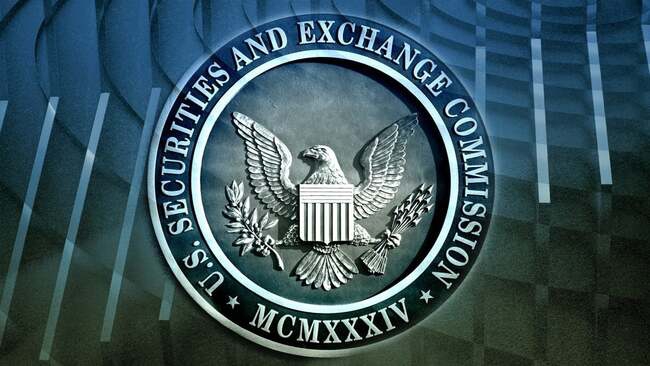Highlights:
- Commissioner Peirce has said NFTs with royalties do not offer business rights, so they should not be treated as securities.
- The SEC task force has held many talks with industry leaders to bring clarity to crypto assets.
- A different view by Crenshaw warns that the route taken by the agency could harm market stability and reduce public trust.
Crypto asset guidance took the spotlight as SEC Commissioner Hester Peirce shared her views at the SEC Speaks event on Monday. She said many NFTs do not meet the legal definition of securities. According to her, NFTs that provide royalties over time should also remain outside federal securities laws. These assets rely on smart contracts to deliver creator royalties during resale events.
HUGE: SEC Commissioner Hester Peirce states that the majority of current crypto assets should not be classified as securities🔥 pic.twitter.com/6nxaWureIj
— WebTrend (@WebTrendCo) May 19, 2025
Peirce explained that such NFTs do not give ownership in a business or offer profit shares. Instead, they pay creators like music platforms pay artists. She added that the nature of these payments does not resemble traditional investment returns. Therefore, these NFTs should not be treated the same as business-linked securities.
Peirce also noted that not all NFTs carry economic rights that define them as securities. She said many functions only as creative tools for artists and users. For her, their use depends on structure and purpose, not how they look or sound. She stressed that this view helps provide needed clarity for the crypto market.
Crypto Asset Guidance Becomes SEC Focus
Peirce said the SEC’s Crypto Task Force has worked to strengthen crypto asset guidance since she took charge in January 2025. Over the past months, the team has held more than 100 conferences, organized roundtables, and spoken with many players in the industry. They seek to establish clear guidelines for stablecoins, memecoins, and NFTs.
She stated that for crypto to be considered a security, its units must guarantee either business rights or future profits. Assets meant for use or consumption should not follow the same rules. Peirce said the key is understanding how an asset functions, not just how it is labeled. For her, the “economic realities” of an asset should guide its legal treatment.
The safe harbor suggested by Peirce helps some cryptocurrencies escape the burden of full registration. This is possible if they satisfy certain conditions. She believes that crypto airdrops should not be included in the registration process. According to her, these changes would make the security of users more flexible.
She highlighted the need to define when an asset stops being tied to an investment contract. Peirce noted that courts sometimes refer to some secondary sales as securities transactions. Still, she believes the SEC should not leave those decisions to the courts alone. The commission, she added, must give clear guidance for such cases.
Crenshaw Raises Concern Over Enforcement Shifts
Commissioner Caroline Crenshaw also addressed crypto asset guidance during the same event. Crenshaw said the agency has rolled back enforcement without full analysis or public discussion. She compared the situation to a game of Jenga, where removing one rule may bring down the entire system.
SEC's Crenshaw warns against dismantling crypto regulations, likening it to a risky game of Jenga.
The SEC's internal discord could delay clear crypto rules, increasing market uncertainty.
Will the SEC's approach foster innovation or invite another crisis?
Thoughts? 🤔
— Poza ego👁️ (@egordelta) May 20, 2025
Crenshaw said the SEC’s guidance now relies more on informal signals than clear action. She believes this harms the agency’s position in court and public trust. She also said that abandoning parts of the enforcement program creates confusion in the market. Crenshaw’s remarks showed a different stance from Peirce, especially on how the SEC should handle crypto asset guidance.
Best Crypto Exchange
- Over 90 top cryptos to trade
- Regulated by top-tier entities
- User-friendly trading app
- 30+ million users
eToro is a multi-asset investment platform. The value of your investments may go up or down. Your capital is at risk. Don’t invest unless you’re prepared to lose all the money you invest. This is a high-risk investment, and you should not expect to be protected if something goes wrong.






